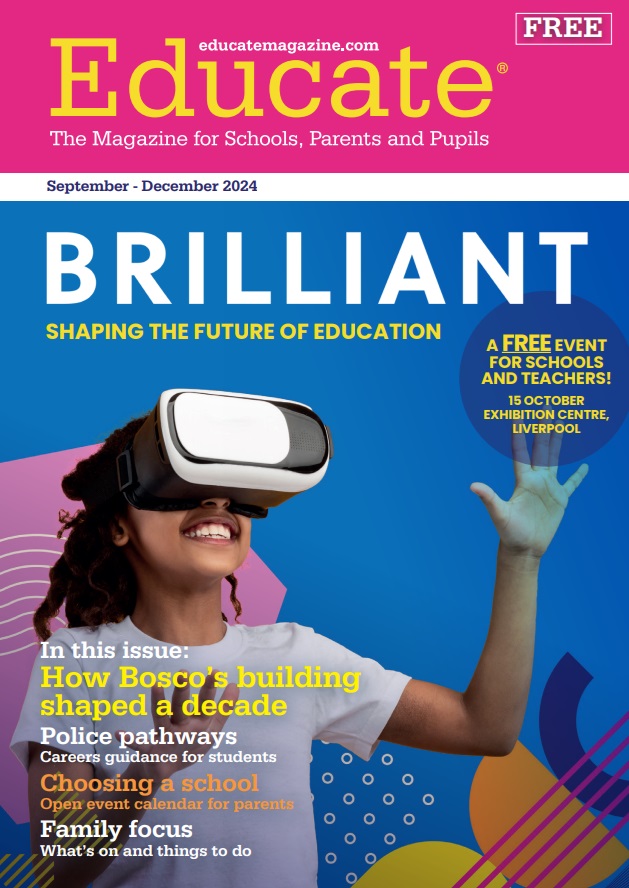New report uncovers stark knowledge divide between students of university graduates and those without degree-holding parents

The Social Market Foundation, on behalf of Speakers for Schools, undertook a new detailed study about the forms of knowledge that boost education and employment success.
‘Assumed knowledge’ – described as the minimum level of knowledge you need for a particular subject – found that on boosting education and employment success, the assumed knowledge skewed heavily towards young people from more affluent families, and those with parents that have been to university themselves.
The report concludes that differing levels of assumed knowledge threatens equality of opportunity because some groups benefit from access to certain information that helps them ‘get ahead’ in education and employment.
Groups with higher assumed knowledge tend to be more affluent, with parents who were graduates, and with valuable social connections. Speakers for Schools said this helps explain why young people from disadvantaged backgrounds with similar grades at school to their more-privileged peers can end up doing less well in higher education and the job market.
The report found that over a third (35 per cent) of young people from less advantaged backgrounds were unable to identify the University of Cambridge as the most prestigious university from a list of institutions. A quarter of all 15-21 year olds surveyed were unable to do the same.
Meanwhile, nearly half (48 per cent) of young people were unaware that graduates earned more than non-graduates. Young people who are eligible for free school meals are less likely to know this. Over a quarter of young people also did not understand how the student finance system works, with those eligible for free school meals nearly twice as likely to believe student loans could lead to bankruptcy.
A third of young people from least advantaged backgrounds did not receive careers advice from family or friends, compared to just five per cent of those who have a parent/guardian with a post-graduate degree. Private school students were also 11 percentage points more likely to have spoken to a careers advisor at school.
Less than half (47 per cent) of young people eligible for free school meals thought salaries could be negotiated, compared to 64 per cent of their more well-off peers. Also, only 60 per cent of 15 to 28-year-olds whose parents were non-graduates saw value in networking, compared to 81 per cent of respondents with graduate parents
Young people with connections in prestigious industries such as law, medicine and academia had higher levels of assumed knowledge. 42 per cent of young people eligible for free school meals did not know anyone in a prestigious profession, compared to just 20 per cent of those not eligible.
Data also revealed that 65 per cent of those with university-educated parents felt confident speaking with senior professionals, compared to 49 per cent of those with non-graduate parents.
The report recommends the successful roll-out of two weeks’ worth of work experience for all young people. Other proposed measures include embedding assumed knowledge into the curriculum, for example by linking subjects to careers, and a more proactive role for the National Careers Service once young people have left compulsory education.
In response to the report, Speakers for Schools is calling for urgent action to be taken to help level the playing field between pupils from the least advantaged backgrounds and their more affluent peers through the provision of opportunities to connect young people to successful, aspirational figures and role models and mentoring opportunities who can demystify careers and build confidence.
Nick Brook, CEO of Speakers for Schools, said: “Where you are born and who you are born to can play a pivotal role in determining your life chances in the UK.
“Ours is a system where the cream does not naturally rise to the top. Raw talent and academic ability are not always enough for young people from more disadvantaged backgrounds to overcome the barriers they face to future success.
“Today’s report shines a light on the problem but also spotlights the way forward. This problem is fixable, if we ensure that all young people are exposed to rich experiences of the world of work whilst at school, to demystify careers and provide valuable insights.
“Young people without access to networks outside of school for advice and guidance need to be able to access this in school, through improved careers advice, mentoring and support. Currently these services are underfunded and overstretched.
“Encouragingly, this evidence shows that pupils from less advantaged backgrounds draw most benefit from high quality experiences of the world of work. Done well, work experience for all can help level the playing field so that all young people have the knowledge they need to navigate their way through the system with confidence”.
Responding to the new report, James Bowen, assistant general secretary at school leaders’ union NAHT, said: “This report shines a useful spotlight on the way that disadvantage can manifest itself in all sorts of different forms throughout a young person’s life.
“It shows that academic outcomes are only one part of the picture and that a whole range of other factors are at play too. Breaking down those additional barriers is vital if we are to give all young people the best possible start in life.
“Work-related learning at secondary age can play an important part in tackling those barriers and is crucial to help pupils to think about their future, while providing them with a valuable taste of the world of work.”







